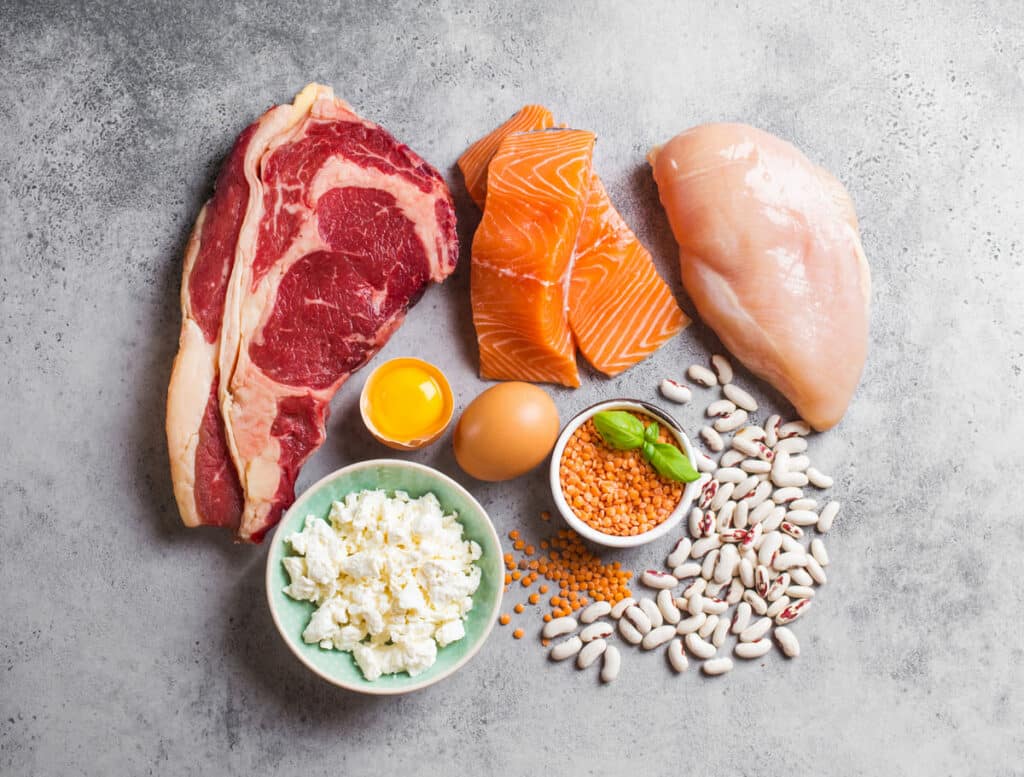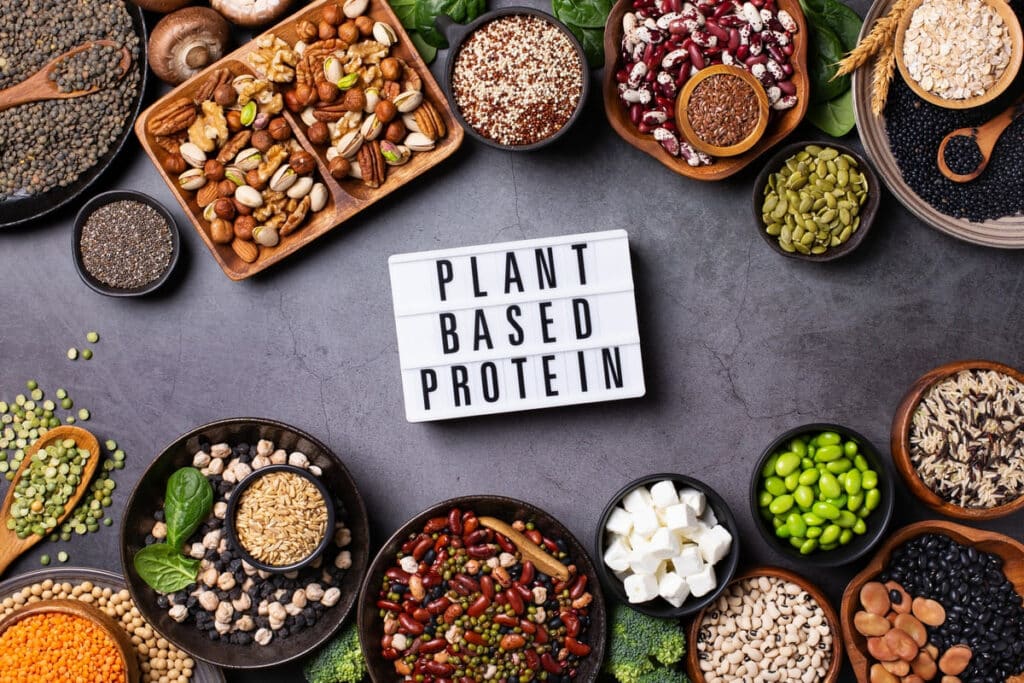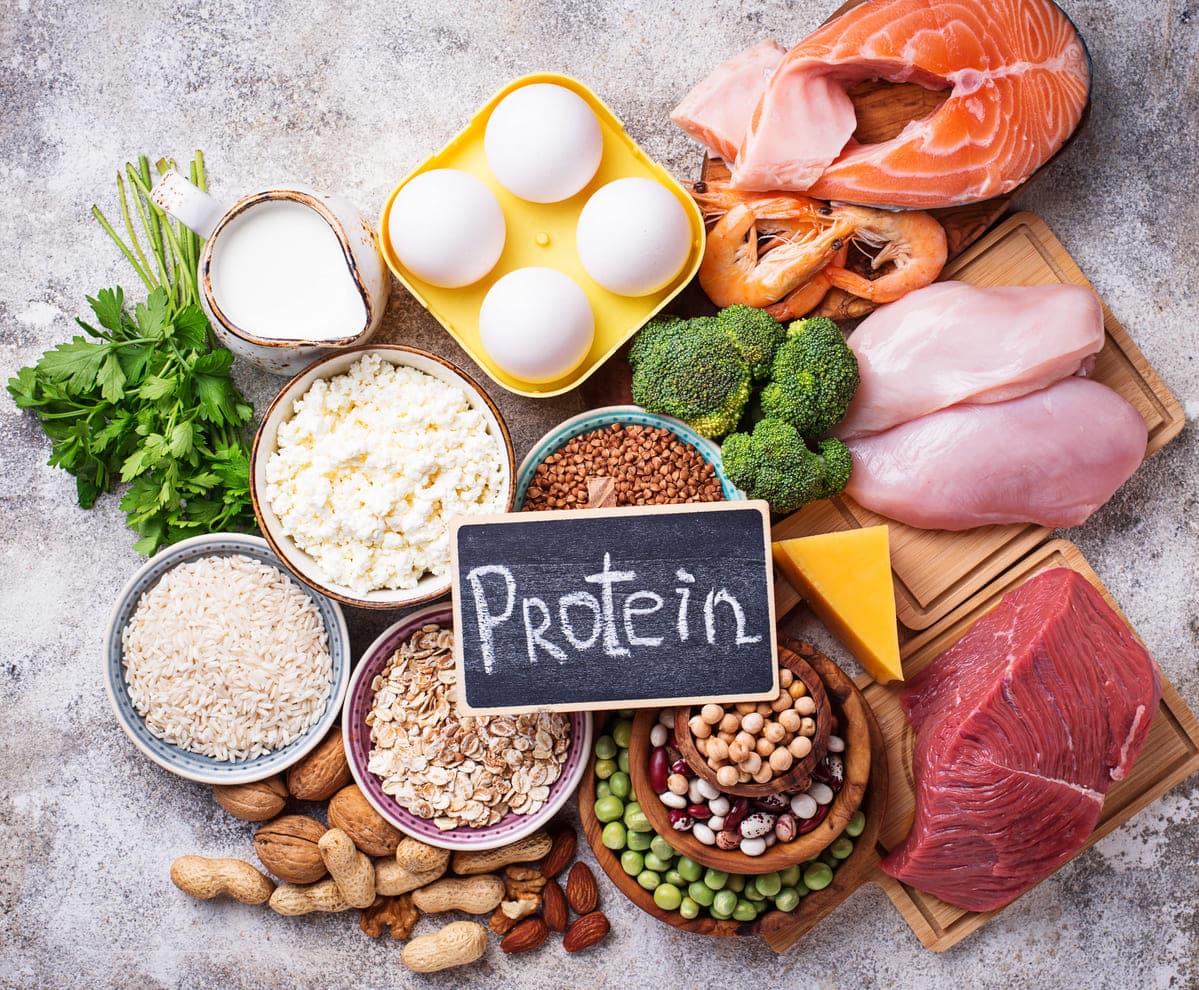Do you know how much protein you should take per day? Maintaining a healthy diet is critical to living a long and fulfilling life. While everyone has different dietary requirements, some general rules usually apply. Protein is a macronutrient that is essential to the human body. It is necessary to grow and maintain all tissues, including muscles, bones, skin, etc. This blog post will discuss how much protein is needed per day and how to get it. So without further ado, let’s get started!
In the human body, protein intake is one of the most important factors for good health. Proteins are the basic building blocks of human cells, tissues, and organs. They provide structure, function, and regulation within the body and are essential for the growth and repair of all cells. Protein is also required to produce enzymes, hormones, and other vital compounds. Protein intake requirements vary depending on age, activity level, and muscle mass. It is essential to understand how much protein is needed per day to maintain optimal health. That’s why we’ve outlined everything you need to know about how much protein you should consume daily.
In This Article
What is protein?
Protein is a macronutrient that is essential to building muscle mass. It is made up of essential amino acids that the body cannot produce on its own and must be obtained through the diet. Protein is necessary for human health as it plays a role in numerous biological processes such as cell repair and growth, hormone production, immunity, and enzyme function. We now know that the body creates 11 amino acids, known as non-essential amino acids. The human body requires nine amino acids, known as essential amino acids, that must be supplied through food instead of being produced by the body.

What is the ideal amount of protein intake per day?
As we said above, protein is an essential macronutrient that helps our bodies grow and repair tissue. The recommended dietary allowance (RDA) for protein is 0.8 grams per kilogram or about 55 grams of protein per day for a 150-pound person. However, many experts believe that most people need more than the RDA to maintain good health and support an active lifestyle.
For example, the American College of Sports Medicine (ACSM) recommends people who exercise regularly generally have higher protein needs; they typically only need 1.1–1.5 grams per kilogram of body weight each day. People who lift weights regularly or are training for a running or cycling event may need 1.2–1.7 grams per kilogram each day though excessive protein intake would be more than 2 grams per kilogram of body weight daily. Generally, high-protein diet plans fall into the 1.5-2.0 grams per kilogram range.
However, it is necessary to calculate protein intake as too much protein can lead to weight gain and other health problems. In addition, some research suggests that too much protein may be harmful to people with kidney disease. The best way to ensure you’re getting the right amount of protein is to consult a registered dietitian or nutritionist. They can help you determine how much protein you need based on your age, activity level, and other factors. Protein intake Guidelines in special situations:
For Pregnant women and Lactating people.
According to the American College of Obstetricians and Gynecologists (ACOG), pregnant women need about 1.77 g/kg (0.8 g/lb) of protein daily during this time, which is about 71 g/day for a 130 lb (59 kg) woman. ACOG also recommends that pregnant women eat at least 71 g of protein per day during their first trimester. On the other side, RDA for lactating people suggests atleast 1.3 g/kg of protein daily. However, in both situations thinking of weight loss is not a good idea, as it might lead to a deficiency of some vital minerals and vitamins.
For older Adults.
For adults over 50, the protein intake should be based on the Recommended Dietary Allowance (RDA), which is 1.2 g/kg/day or 0.5 g/lb/day. This amounts to about 56 grams/day for a 130 lb (59 kg) person. However, some researchers believe that older adults may need more protein than the RDA to maintain muscle mass and strength. A review of research found that adults over the age of 50 who ate more than the RDA for protein had better muscle mass and strength.
People with any disease
If you have any disease, it is always best to consult a doctor or dietitian to find out how much protein you need. People with liver and kidney disease need to take 0.6 grams to 0.8 grams per kilogram of body weight per day. For example, a 70-kilogram person with liver or kidney disease should take between 42 and 56 grams of protein each day.
For infants and children
The amount of protein an infant or child needs depends on their age and weight. The American Academy of Pediatrics (AAP) recommends that infants consume at least 2.5 grams of protein per kilogram of body weight each day. For example, a 12-pound (5.4-kilogram) infant would need about 30 grams of protein each day. However, it is best to consult with a healthcare provider if you are unsure about how much protein your infant or child needs. They can give you specific recommendations based on your child’s age and weight.
How to get enough protein?
Though by eating protein-rich foods, it is possible to get the recommended intake of protein, some people may find it difficult to do so. In such cases, protein supplements can be helpful in order to ensure that the body gets enough protein. Furthermore, the best protein sources, such as plant-based protein, dietary protein, and whey protein, can help you to get the right amount of protein your body needs. You can get optimal protein intake by including the following foods:

Eggs
A large egg contains about 6 grams of protein. Eggs are also a good source of other nutrients such as omega-3 fatty acids, vitamin D, and choline. Generally, lean mass gainers suggest eating 3-4 whole eggs daily in order to increase protein intake.
Dairy products
Dairy products such as milk, yogurt, and cheese are excellent sources of protein. One cup (250 ml) of milk contains 8 grams of protein, while one cup (227 grams) of yogurt contains 11 grams of protein. Cheese is also a rich source of protein, with one ounce (28 grams) providing 7 grams of the nutrient.
Meat and poultry
Meat and poultry are excellent sources of protein. A 3-ounce (85-gram) serving of cooked chicken breast contains 26 grams of protein, while a 3-ounce (85-gram) serving of cooked ground beef contains 21 grams of protein.
Beans and legumes
Beans and legumes are also good sources of protein. A 1-ounce (28-gram) serving of black beans contains 7 grams of protein, while a 1-ounce (28-gram) serving of lentils contains 9 grams of protein. However, people with muscle gain goals should limit their intake of beans and legumes as they are also high in carbohydrates.
Nuts and seeds
Nuts and seeds are also good sources of protein. A 1-ounce (28-gram) serving of almonds contains 6 grams of protein, while a 1-ounce (28-gram) serving of sunflower seeds contains 5 grams of protein. However, to store protein in the body, it is better to eat them in the form of butter or oils.
Why do we need to take protein per day?
As we have to know, energy intake (calories) determines how much protein we need to take. The body needs energy for various functions like cell regeneration, tissue repair, beating the heart, and performing other vital functions. There are many health benefits of protein intake, and they are:
Helps in cell regeneration
Protein is involved in the process of cell regeneration. When we work out, our muscles get damaged and must be repaired. This process is known as muscle protein synthesis and helps grow and repair muscle tissues.
It helps in weight loss
Protein foods require more energy to digest and metabolize than carbohydrates or fats, which means you burn more calories processing them. A high protein intake can boost metabolism by up to 80–100 calories per day and make you automatically eat fewer calories per day (16).
Performs other vital functions
Protein is also involved in other vital functions like blood clotting, building immunity, and transporting oxygen and nutrients in the body. However, most of the protein in the body is used for muscle growth and repair.
Promotes healthy skin and hair
Protein is a key building block of both skin and hair. It helps promote cell growth, repair, and regeneration, keeping skin looking youthful and preventing hair from thinning or breaking. Furthermore, protein is necessary for producing collagen and keratin, which are important for skin and hair health.
Boosts immunity
Protein is needed for the development and function of many immune cells. It also helps the body produce antibodies, which protect against infection. It is important to consume enough protein, particularly during times of illness or stress, when the body’s immune system is more likely to be compromised.
The Bottom Line
Therefore, knowing how much protein you need daily is important for getting it. The best way to get the right amount of protein is to eat a variety of proteins from animal and plant sources and supplement your diet with quality protein powder. Generally, daily protein intake based on body weight (0.36 grams per pound) is a good place to start, but you may need more or less depending on your activity level and muscle-building goals. When in doubt, consult a registered dietitian for help tailoring your diet to your specific needs. We hope this blog post was helpful; if you have any questions, please leave them in the comments below!
Reference Link











